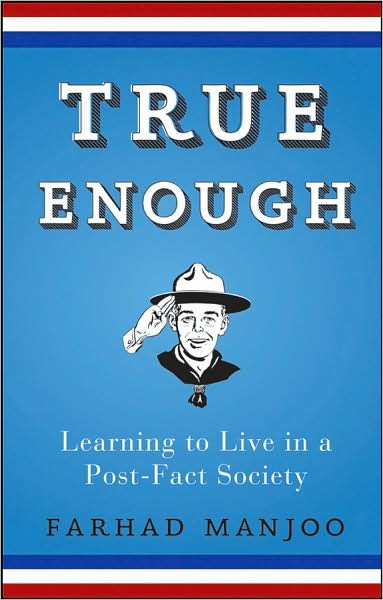
When the amateurs broke down the information monopoly of the mainstream media, we were supposed to replace it with something better: A media reality not dominated by any one single ideological bias, where anyone, no matter who they were, could potentially be heard by everyone, as long as they had something reasonable to say.
Instead we got a world of closed-off information ecosystems, recycling their own views and interpretations without showing much interest in anyone elses.
Farhad Manjoo explains in True Enough: Learning to Live in a Post-Fact Society why that happened: Selective exposure and selective perception. Given a choice, we’d rather not be confronted with strong arguments we don’t agree with. Given a choice, we’d rather listen to the expert who tells us what we want to hear. The internet gives us that choice.
Paradoxically, the amount of information available contributes to the problem. Previously, conspiracy theories fed on lack of information. You’d see the Kennedy assasination video, and fill in the blanks with your fantasies. Today, we can easily seek out information that confirms our view, and ignore the rest.
As examples, Manjoo selects the Swift Boat Veterans, the 9/11 truthers, and the accusations of fraud in the 2004 U.S. election. There are many more. One thing he doesn’t do is actually tell us how to live in a post-fact society, as the subtitle says. I don’t know either, but I suspect it falls in the same class of problems as over-eating. We can’t trust our instincts, and must balance them with rules of thumb.
Facts are for wussies, truthiness are for men.
“truthiness are for men”
Hm, what is the plural of truthiness? Truthinesses?
Uncountable